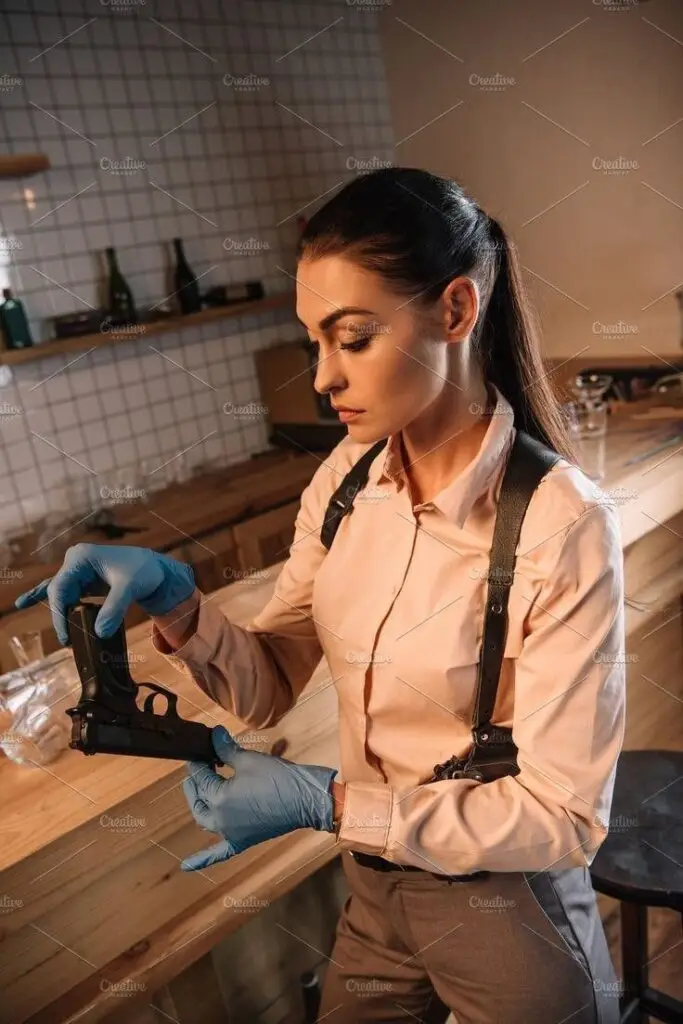
Crime scenes often involve more than just law enforcement investigations. After authorities have finished their work, there remains a critical step—thorough and professional cleanup. Crime scene cleanup is an important service that ensures spaces affected by violent crimes, suicides, or accidents are restored to a safe and sanitary condition. Without proper cleaning procedures, hazardous biological materials, bloodborne pathogens, and toxic residues can pose serious health risks.
Proper cleanup eliminates potential dangers and plays a vital role in restoring emotional well-being for families, business owners, and communities affected by traumatic incidents. Understanding the impact of crime scene cleanup on health and safety highlights the importance of professional intervention in these sensitive situations.
Addressing Biohazard Contamination
Crime scenes often contain biohazards that require specialized handling and disposal. Blood, bodily fluids, and tissue remnants can carry dangerous pathogens such as hepatitis B, hepatitis C, and HIV. If not properly cleaned, these contaminants can lead to the spread of infectious diseases, posing risks to anyone who enters the area. Consulting with crime scene cleanup experts ensures that all hazardous materials are removed safely and that the affected area is disinfected according to strict health regulations. Professional cleanup teams use advanced equipment and EPA-approved disinfectants to eliminate biohazards and prevent cross-contamination.
Crime scene technicians follow OSHA (Occupational Safety and Health Administration) guidelines and adhere to industry best practices for biohazard remediation. This includes using personal protective equipment (PPE), applying proper decontamination techniques, and safely disposing of hazardous waste. Without these measures, improper cleaning methods could leave harmful residues behind, creating long-term health risks.
Reducing Exposure to Toxic Chemicals and Residues
Beyond biohazards, crime scenes may contain hazardous chemicals, drug residues, and other toxic substances. In cases involving illegal drug manufacturing, such as meth labs, dangerous chemical residues can linger in the air, on surfaces, and in ventilation systems. Exposure to these substances can lead to respiratory issues, skin irritation, and long-term health complications.
Cleaning up chemical contamination requires specialized knowledge and safety protocols. Professionals use high-efficiency filtration systems and chemical neutralizers to remove toxins and ensure the air quality is safe for re-entry. Proper ventilation, thorough surface decontamination, and waste disposal procedures help eliminate risks associated with hazardous substances.
Homes, businesses, and vehicles exposed to crime-related chemical spills or drug residues should never be cleaned using standard household methods. Only trained crime scene cleanup professionals have the expertise and resources to fully restore these spaces to a safe condition.
Preventing Psychological Trauma for Families and Workers


Beyond the physical health risks, crime scene cleanup plays a significant role in protecting emotional well-being. Families who experience violent crimes or tragic events in their homes often struggle with grief, shock, and trauma. Leaving the cleanup process to professionals helps shield families from the distress of handling these sensitive situations themselves.
Seeing bloodstains, bodily fluids, or other remnants of violence can trigger emotional distress and prolong the grieving process. Crime scene cleanup professionals approach their work with compassion, discretion, and efficiency, allowing families to focus on healing rather than dealing with the physical reminders of a tragedy.
Businesses that experience workplace accidents or crimes need prompt and professional cleanup to maintain employee morale and provide a safe working environment. Quick remediation minimizes disruption and ensures that employees and customers feel secure returning to the space.
Legal and Environmental Compliance in Crime Scene Cleanup
Proper crime scene cleanup is not just about removing visible traces of a crime—it involves complying with local, state, and federal regulations regarding biohazard disposal and sanitation. Failure to follow proper procedures can lead to legal consequences, fines, and health code violations.
Biohazard waste, including blood-soaked materials, must be transported and disposed of in accordance with hazardous waste management laws. Professional crime scene cleanup companies are trained to handle biohazard disposal properly, preventing contamination of public spaces and water sources.
The Role of Advanced Technology in Crime Scene Cleanup
Modern crime scene cleanup relies on advanced technology to ensure thorough decontamination. Ultraviolet light detection helps identify unseen biohazards, while ATP (adenosine triphosphate) testing measures the effectiveness of disinfection efforts.
Ozone generators and hydroxyl technology are often used to eliminate odors caused by decomposition, blood, and chemical residues. These advanced air purification systems break down harmful particles, ensuring that the affected space is visually clean and free from lingering contaminants.
Why Crime Scene Cleanup Should Never Be a DIY Task
Attempting to clean a crime scene without professional expertise can lead to serious health risks, emotional distress, and legal complications. Standard household cleaning supplies are not effective in eliminating biohazards or chemical contaminants. Without the proper training, individuals risk exposing themselves to infectious diseases or spreading contamination throughout the property.
Crime scene cleanup requires specialized skills, equipment, and protective gear. Professionals are trained to assess the level of contamination, follow strict safety procedures, and restore affected spaces without compromising health. Homeowners, business owners, and property managers should always rely on certified cleanup experts rather than attempting to handle these situations alone.
From addressing biohazard contamination and toxic residues to ensuring compliance with safety standards, crime scene cleanup plays a crucial role in restoring properties to a safe and livable condition. By relying on trained experts, individuals can protect themselves from health risks while focusing on emotional recovery and moving forward with confidence.
- 3shares
- Facebook0
- Pinterest0
- Twitter3
- Reddit0



